Discover the most common leadership mistakes and learn how to avoid them. With these expert insights, you can boost your leadership skills and drive your team to success.
Introduction
Leadership is often glamorized as the pinnacle of professional success, wrapped in accolades, power, and esteem. Yet, beneath this shiny surface lurks the potential for serious pitfalls that can turn the dream into a nightmare. Even the most seasoned leader is susceptible to errors that could tarnish their reputation and derail their career. Let’s delve into the surprising mistakes that can undermine leadership and explore how one can navigate these treacherous waters.
Ignoring Feedback: The Silent Killer of Success
Early in my career, I worked with a manager who staunchly believed that decisions, once made, shouldn’t be questioned. His reluctance to accept feedback extended to team meetings, causing ideas to stagnate and morale to plummet. He failed to recognize the importance of active listening and constructive criticism in fostering growth and innovation.
The Importance of Feedback Loops
- Constructive Criticism: Feedback is a tool for learning, not a weapon for criticism.
- Employee Engagement: Thriving workplaces are built on a foundation where voices matter.
- Growth and Innovation: New ideas stem from open dialogues and varied perspectives.
Encourage open communication and regular feedback loops to ensure the team feels heard and valued.
Also Read https://pivotyourself.com/feedback-loops-harnessing-the-power/
Micromanagement: Strangling Creativity and Growth
In the quest for perfection, some leaders fall into the trap of micromanagement, stifling creativity and stunting team members’ growth. I once shadowed a director who insisted on approving every minor detail in every project. His oversight was so intrusive that talented individuals began to question their capabilities.
The Cost of Overcontrol

- Diminished Autonomy: Employees feel undervalued and unable to contribute innovatively.
- Reduced Trust: Leadership should be about trust, not control.
- Burnout and Turnover: High employee turnover often correlates with overbearing leadership styles.
Advice: Trust your team’s skills and creative abilities, and provide guidance only when necessary.
Lack of Transparency: Breeding Grounds for Distrust

Cultural Differences in Transparency
Different cultures have varying expectations and norms regarding transparency. What may be considered transparent in one culture could be seen as intrusive or inappropriate in another, leading to misunderstandings and distrust in international business relationships.
An opaque leadership style can sow seeds of distrust within a team. Employees thrive on a clear direction and understanding of the ‘why’ behind tasks and initiatives. Without transparency, the office grapevine fills the void, often with misinformation.
Consequences of Secrecy
- Erosion of Trust: Without transparency, suspicion and doubt thrive.
- Misalignment: Teams work more effectively when they understand the big picture.
- Lack of Cohesion: Unified efforts stem from shared goals and clear communication.
Recommendation: Be open about company goals and strategies. When changes occur, explain the reasons behind them.
Failing to Adapt: The Inflexibility Trap

Inflexibility is linked to certain personality traits
Research has shown that individuals with high levels of neuroticism and low levels of openness to experience are more likely to struggle with adaptation. Understanding these personality factors can help in developing targeted strategies to overcome inflexibility.
Sticking rigidly to outdated methods or resisting change is a notable mistake that can cause a leader—and their team—to become obsolete. I recall a senior manager refusing to adopt new digital tools, dismissing them as fads. Consequently, the team lagged behind competitors in technological efficiency and customer satisfaction.
Importance of Adaptability
- Staying Relevant: Evolving with trends and technology is crucial for staying competitive.
- Inspirational Leadership: Embrace change to inspire your team to do the same.
- Continued Learning: Adaptation often requires learning new skills and approaches.
Strategy: Stay informed about industry trends and be open to updating processes accordingly.
The Ripple Effects of Leadership Mistakes
Leadership mistakes can have far-reaching consequences that extend beyond the leader themselves. When a leader makes a poor decision or misbehaves, it can affect the entire organization. Employees may lose trust and confidence in their leader, decreasing motivation and productivity. This can create a negative work environment where people feel unsure and anxious.
The effects can spread to customers and business partners, damaging the company’s reputation and relationships. Even minor leadership errors can snowball into bigger problems if not addressed. Good leaders must know how their actions impact others and take responsibility for their mistakes. By learning from errors and making improvements, leaders can help their teams and organizations recover and grow stronger.
Conclusion: Steering Clear of Career-Ending Pitfalls
An effective leader requires confidence, humility, creativity, openness, strategy, and empathy. While mistakes are inevitable, they do not have to mark the end of a career. Leaders can prevent their careers from derailing by learning from every misstep and committing to improvement.
“The greatest mistake a leader can make is to be afraid of making one.”
Leadership is a journey of learning, growing, and continually refining one’s approach. Are there any stories where you’ve seen leadership opportunities turn into career-defining moments? Sharing and learning from each other can lead to richer leadership experiences.
FAQ
1. What are some common leadership mistakes that can harm a career?
Common leadership mistakes include poor communication, micromanaging, failing to delegate, ignoring employee feedback, and not leading by example.
2. How can poor communication affect a leader’s career?
Poor communication can lead to misunderstandings, reduced team productivity, and a lack of trust, ultimately damaging a leader’s reputation and career prospects.
3. Why is micromanaging considered a leadership mistake?
Micromanaging can stifle creativity, reduce employee morale, and prevent team members from developing their skills, which can reflect poorly on the leader’s ability to manage effectively.
4. How does failing to delegate impact a leader’s career?
Failing to delegate can lead to burnout, prevent team growth, and show a lack of trust in employees, which can harm the leader’s reputation and career advancement opportunities.
5. What are the consequences of ignoring employee feedback?
Ignoring employee feedback can lead to decreased job satisfaction, higher turnover rates, and missed opportunities for improvement, which can negatively impact a leader’s effectiveness and career progression.
6. How can a leader’s lack of integrity affect their career?
A lack of integrity can erode trust, damage relationships with team members and stakeholders, and ultimately lead to career setbacks or even termination.
7. Why is resistance to change considered a leadership mistake?
Resistance to change can prevent organizations from adapting to new market conditions, stifle innovation, and make a leader appear outdated or inflexible, potentially harming their career prospects.
8. How does favoritism impact a leader’s career?
Favoritism can create a toxic work environment, reduce team morale, and damage the leader’s credibility, potentially leading to career stagnation or demotion.
9. What are the risks of making decisions without proper information?
Making uninformed decisions can lead to poor outcomes, wasted resources, and a loss of confidence in the leader’s judgment, which can negatively impact their career progression.
10. How can a leader’s inability to admit mistakes affect their career?
An inability to admit mistakes can damage credibility, prevent learning and growth, and create a blame culture, limiting a leader’s career advancement opportunities.


Leave a Comment
Your email address will not be published. Required fields are marked *